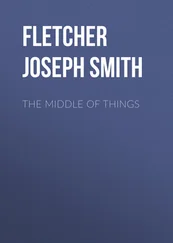Jose Peixoto - The Implacable Order of Things
Здесь есть возможность читать онлайн «Jose Peixoto - The Implacable Order of Things» весь текст электронной книги совершенно бесплатно (целиком полную версию без сокращений). В некоторых случаях можно слушать аудио, скачать через торрент в формате fb2 и присутствует краткое содержание. Год выпуска: 2008, ISBN: 2008, Издательство: Knopf Doubleday Publishing Group, Жанр: Современная проза, на английском языке. Описание произведения, (предисловие) а так же отзывы посетителей доступны на портале библиотеки ЛибКат.
- Название:The Implacable Order of Things
- Автор:
- Издательство:Knopf Doubleday Publishing Group
- Жанр:
- Год:2008
- ISBN:9780385526784
- Рейтинг книги:5 / 5. Голосов: 1
-
Избранное:Добавить в избранное
- Отзывы:
-
Ваша оценка:
- 100
- 1
- 2
- 3
- 4
- 5
The Implacable Order of Things: краткое содержание, описание и аннотация
Предлагаем к чтению аннотацию, описание, краткое содержание или предисловие (зависит от того, что написал сам автор книги «The Implacable Order of Things»). Если вы не нашли необходимую информацию о книге — напишите в комментариях, мы постараемся отыскать её.
Set in an unnamed Portuguese village against a backdrop of severe rural poverty,
is told from the various points of view of two generations of men and women, hardened by hunger and toil and driven by a fate beyond them to fulfill their roles in the never-ending cycle of violence, retribution and death.
José, a taciturn shepherd, sees his happiness crumble when “the devil” tells him he is being cuckolded. Old Gabriel offers wise counsel, while a different kind of love story develops concerning Moisés and Elias, conjoined twins attached at the tips of their little fingers. Unable to live without each other, they find their tender communion shattered when Moisés falls in love with the local cook. And, of course, there is the Devil himself. Love may be a luxury, but there are moments of the greatest tenderness among even the most unlikely lovers.
Written with subtle prose and powerful imagery,
draws us into this unique and richly textured world. It is a novel of haunting beauty and heralds the arrival of an astoundingly gifted and poetic writer.
The Implacable Order of Things — читать онлайн бесплатно полную книгу (весь текст) целиком
Ниже представлен текст книги, разбитый по страницам. Система сохранения места последней прочитанной страницы, позволяет с удобством читать онлайн бесплатно книгу «The Implacable Order of Things», без необходимости каждый раз заново искать на чём Вы остановились. Поставьте закладку, и сможете в любой момент перейти на страницу, на которой закончили чтение.
Интервал:
Закладка:
And with a sudden light that made his insides flare, Moisés’s bowels ignited in a rampant fire, kindled by an overwhelming asphyxia, a fire and a light that burned holes in his belly, that hammered nails into his belly, that slashed his belly like an ax; in Moisés’s belly a thousand armies walked barefoot over live coals, a thousand armadas ripped with razor-sharp rudders through fiery tides; Moisés’s belly was light and fire, light and fire, a sudden sun born with the intensity of midday, the blaze from a match fallen on oil poured over his guts. Moisés was bent over his stomach, and Elias was bent over his stomach. Both brothers felt the same hell burning the inside of their skin. The walls of the oil press shouted a chorus of screams that, to the brothers’ hearing, were a single scream scraping the inside of their ears with a pointy firebrand, and the brothers imagined that the voice sounded throughout the world: that the water flowing in brooks was that shrillness, and that the silence of birds and crickets on the plains had been replaced by that deafening intensity which was toppling trees, uprooting houses and stones, and driving people mad with the voracity of a cyclone. Moisés was burning up inside, and Elias felt the same flames. But they both knew it was Moisés who was dying. Moisés fell to his knees, Elias fell to his knees. And in the bowels of both brothers a bloody-eyed witch stirred a cauldron of flames and embers, a river overflowed its banks and flooded the fields with flames and embers, a multitude of madmen shot off fireworks and transformed the night sky into flames and all the stars into embers. Moisés was throwing up foam. And they both closed their eyes as hard as they could, and both saw a perfect blackness swallowing them: not the blackness that comes from lowering the eyelids and that’s speckled by luminous dust, nor the blackness of it being night and us imagining, as we go to sleep, the day or even the morning, but the absolute blackness of solitude, indifferent black, absolute solitude, eternal black, eternal solitude. Moisés was throwing up foam that, against his will, rose up in him and issued from his mouth as a round, continuous substance. It wasn’t a white foam, for it contained blood and yellowish bits from his insides. And the pain, increasing, became unbearable. And the brothers struggled against the fire that burned more than fire, against the inaudible scream that deafened them, and against the black blackness of death that blinded them, to look at each other one last time. And in that long, significant moment they stopped burning inside, they looked at each other, and they said no words in their gaze; they entered each other, they exchanged bodies, and in that way hugged each other. At the end of that moment Moisés, destroyed, fell dead.
That evening, when they didn’t show up for dinner, the cook asked the migrant who lived opposite to go fetch them. It was this man who found Moisés with his head lying on Elias’s lap and Elias crying with a face already ravaged by many tears. It was this man who found them in the darkness of the oil press and struck a match to light up their faces, not realizing that it was impossible to light up that darkness. He looked at the water that formed wide rivers on Elias’s face, at his eyes that were the springs of those rivers, and saw only that he wept. He didn’t see that Elias had experienced death without dying; he didn’t see that he had died and survived death to keep suffering. And this man returned with other men in silence, grave and dark men, sad men who lifted Moisés and laid him on a wagon. Elias always at his side, crying. The wagon’s iron wheels rolled over the dust and stones of the street, and it was the only sound heard in the night’s funereal silence. The wagon rolled and the streets slowly lit up, because every house door opened and everyone, full of sorrow, came out to see the brothers. The men standing in the doorways with their caps off and their arms outstretched, unmoving; next to them their wives, with the same mournful gaze of uncontainable sorrow. The men who had gone to get the brothers walked through the night, themselves like pieces of solemn and black night, pulling the mule by its reins; on top of the wagon lay the corpse of Moisés and bent over it, the ruins of Elias’s body, his tears. They walked for many nights in that night to reach the cook’s house. And the wagon came to a halt. The widowed cook, dressed in dark black, waited for them at the door, overwhelmed, weeping. Forever in silence, as if they were immobile, the men carried Moisés inside and laid him on the new bedspread. The baby’s crib was empty, for as soon as the migrant had returned from the oil press to ask for help, as soon as he had broken the news to the cook and the neighbor women gathered around, one of them took the girl to her house to sleep. The men pulled Moisés’s legs together, placed his right arm over his chest, and left. The brothers and the cook were alone, and sadness seized the whole house. Like a shadow above ground, the cook went out and came back with a cloth and a basin. She stripped the brothers, one as spent as the other, and washed them with the cloth that she dipped into the basin. She dried them and clothed them in a pair of fine, very white shirts and in their dress suits. The suits weren’t black, but they had no others. She buttoned the gold buttons one by one. She figured out the system of buttons and straps for the joined sleeves and fastened them. She combed the brothers’ hair and sat in one of the chairs that the neighbor women had brought and placed around the bed. The light of the kerosene lamp flickered on the room’s sorrow until morning. At daybreak the first woman arrived. She expressed her condolences to the widow and to the brother, and no one heard, she propped open the front door with a piece of wood, blew out the lamp, and opened the shutters to the window. Elias wept all that he had ever lived, for his whole life lay dead on a bedspread before him. The cook wept for having lost her husband, realizing, more than ever, how much he meant to her, and that only made her suffer more, for she’d lost forever her friend, the man for whom she lived and whose happiness she so desired. A second woman arrived. After saying my heartfelt condolences, my heartfelt condolences, and staring for a long time at the corpse of Moisés, she sat next to the other woman. One of them whispered it was some poisonous mushrooms that he ate. Elias ran his hand over his brother’s eyes and over his brother’s lips as very clear tears ran down his own cheeks. The morning entered slowly, sadly, through the window.
~ ~ ~
BY THE FINGER THAT JOINS US, your death has entered me like a progressive disease. I feel my hand as cold as yours, I feel your blood passing through the veins of my hand and coldly flowing throughout my body, I feel my body as cold as yours. Brother, I heard you before you died and you can’t hear me now. These my words are like words written on a blank sheet that remains blank with those words, invisible since there’s no one to read them, words that grow old since there’s no one who understands them, words that lose their meaning, blending imperceptibly into a breeze that no one notices. Brother, my gaze is completely wasted, knowing as I do that you see nothing. My gaze is entirely useless in your silence, transforming entirely into that silence that remembers your life and your death. The morning light, silent because you are dead and it was you who gave it a voice; the morning light, illuminating each dark corner as when you smile…If now your eyes were open, you would enjoy seeing this morning. It wouldn’t be sad, we’d feel this morning on our faces, warming us up. I’d like to be little again and to play with you. To sit with you on the ground and have a morning like this one light up our play and sit down next to us, playing with us and being perhaps our plaything. I’d like to fall asleep with you as when we peacefully fell asleep on nights of an August so distant from this one. We, naked in bed, with the sheet rolled up at our feet and the window open to the night in the backyard, and when the first breeze of early morning entered, we’d wake up at the same time and pull up the sheet, and in those childhood days we slept as long as we wanted, waking up together when the sunlight hit and opened our closed eyes. I’d like to be with you on Senhor Marcos’s tract, our father opening furrows with the plow and telling us go and take this bunch of collard greens and this bunch of turnip greens to Senhor Marcos; and when we reached the large door, it was I who lifted the little iron hand holding a ball and struck it against the door, it was you who talked to the housekeeper, saying our father sent us with this bunch of collard greens and this bunch of turnip greens for Senhor Marcos, and the housekeeper would say I’ll take them, not thank you, not you needn’t have troubled, just I’ll take them, and she’d shut the door. Your voice is what I’ll never be able to hear again, and I just wish I could hear it say let’s rest now, or hear it say brother, brother. Brother. I’ve cried so much, and last night was the eternity of many suffering lives, the same despair repeated in many despairing lives. I know the taste of tears. Remember when it rained? Remember our father, at the market, buying us two identical black umbrellas? We’d walk down the street with our two umbrellas together, circling around puddles, the rain turning the irrigation ditches into rivers, our two umbrellas together, the rain trickling down from the ribs. My tears remind me of that rain, but your absence from this morning and everything in it makes this morning and everything an encounter with sadness, and there are no tears here that can compare with being in the rain at your side. Everything with you was good because you, brother, were good. And last night killed and buried me. Last night without you was a long time, it was years, many years. I’m older than if I’d died centuries ago, more worn out than if I were now just a memory remembered by no one. You have departed for the eternal place of your infinite solitude and have left me alone in this place of so many people so distant from me. Brother, if as a dead man I could remain attached to you, I’d want to die now so as to keep living. But what I want doesn’t count. A night awaits me which is different from and the same as the one you’ve already entered. For all of us there’s a death which, being different from person to person, just as life is different, makes us walk through all that for us is black, through all solitude, screaming out to no one all that we’re able to love. Here, the morning, the oblivious mornings. Now and then I look at your body stretched out on the new bedspread that we never used, in this bedroom that isn’t ours and where we got used to waking up, and it pains me that you’re now cold, it pains me that your skin is limp, it pains me to see people come look at you and you’re dead: your gaze never again, your smile never again, you hearing me never again, you existing and being witness to what I was and we were, never again. Brother. The new, still un greased boots that you were saving for winter but that now cover your feet with the toes pointing upward, the soles clean and perfect: the boots you wear today and forever, since they’re of no more use here, since nothing that was yours and that you cared for is of use to anyone anymore. Your ironed trousers, your jacket, the white shirt with the pointy tips on the collar. Your transfigured face: its forehead more serene than any living man’s forehead; the eyebrows sparse, since they’ve ceased to serve a purpose; the eyelids thick and heavy, covering forever your blind eyes like a tombstone; the nose lean and inert; the lips, washed of dried foam and of words and of unconscious laughs, now thinner, thinner; the useless chin. To look at your face wearies me inside my weariness. My body and what isn’t my body but still is me, everything in me, I, the black piece of sky or stone, sky within the interior of a stone, shut up in the compact solitude of a stone, never having seen the sun, never having breathed, I, I myself, I am a terminal exhaustion. I’m the long-distance runner who went around the world to take a letter to himself and who, now that he found himself, is no longer the same, and who now, out of breath, desires only to lean over a precipice and breathe, and they cover his mouth, and many people with many hands cover his mouth. My heart is the emptiness in the eyes of a condemned man. My shadow is my solitude. I’ve wearied all of me out. All my weariness collided with my weariness, and all of me is just this. The night in which you died fell on what I am. Morning has begun, and last night is a rotting corpse inside me. Brother, my arms are impotent, and daylight is the darkness now controlling them. I’m worn out, I’m spent, as if I’d been trampled by a thousand feet, and I wish I had been trampled by a thousand feet. I’m dead, as if I’d died in the hour you died, and I wish I had died with you. I’m the one who is only a brother and has no brother. I’m the one who’s still waiting. At least a final gaze from you, at least the small hope of a final gaze from you. I’ve lost everything. We’ve lost everything, brother. I’m weary. I’m waiting for a word to roll off your lips. Tell me, please, that I can rest.
Читать дальшеИнтервал:
Закладка:
Похожие книги на «The Implacable Order of Things»
Представляем Вашему вниманию похожие книги на «The Implacable Order of Things» списком для выбора. Мы отобрали схожую по названию и смыслу литературу в надежде предоставить читателям больше вариантов отыскать новые, интересные, ещё непрочитанные произведения.
Обсуждение, отзывы о книге «The Implacable Order of Things» и просто собственные мнения читателей. Оставьте ваши комментарии, напишите, что Вы думаете о произведении, его смысле или главных героях. Укажите что конкретно понравилось, а что нет, и почему Вы так считаете.












